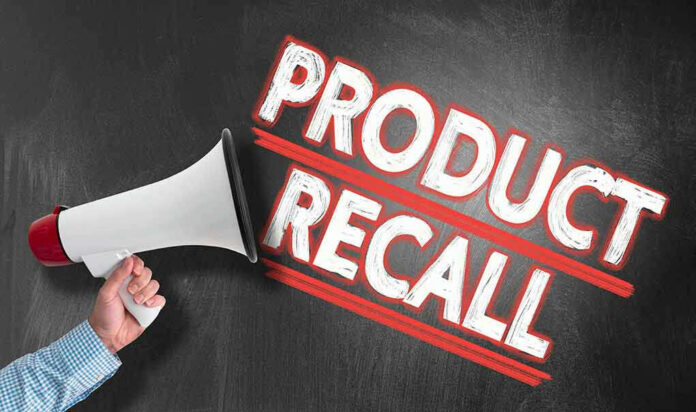
When your so-called “dark chocolate almonds” come with a hidden side of cashew—thanks to a botched food label—the only thing darker than the chocolate is the absurdity of our nation’s food safety protocols.
At a Glance
- Frederik’s Dark Chocolate Almonds recalled after undeclared cashews found in packages
- FDA elevates recall risk to Class II: moderate health risk for those with nut allergies
- Meijer pulls product from shelves across six Midwest states; offers full refunds
- No illnesses reported yet, but recall highlights alarming rise in food safety lapses
Food Safety or Just More Bureaucratic Fumble?
Let’s get this straight: Meijer, the Midwest’s grocery titan, just yanked its Frederik’s Dark Chocolate Almonds from shelves because—brace yourself—they might actually be dark chocolate cashews. That’s not a whimsical recipe swap; it’s a glaring failure of basic packaging and accountability, with real consequences for families dealing with nut allergies. The FDA, ever the slow-moving behemoth, finally elevated this recall to “Class II”—translation: it’s not an immediate death sentence, but if you’re allergic, you’re rolling the dice every time you trust a label.
Meijer’s recall, announced June 13th, 2025, covers stores in Michigan, Indiana, Illinois, Ohio, Kentucky, and Wisconsin. The trigger? A customer—not a regulator—noticed cashews lurking where only almonds should have been. Even more absurd: it’s part of a disturbing trend. Food recalls in 2024 and 2025 have exploded, with allergen mix-ups and bacterial contamination leading the charge. Apparently, “trust but verify” is out, and “hope for the best” is in when it comes to the American food supply.
Midwest Shoppers Left Holding the Bag—Literally
For folks with cashew allergies, this isn’t just a label issue—it’s a family’s worst nightmare. One wrong bite can mean a trip to the ER or worse. Yet, as of now, no illnesses have been reported. Does that mean the system works, or that luck is the only thing protecting shoppers? Meijer, to its credit, is offering refunds and has set up a hotline. But if a giant retailer can’t keep nuts straight in the packaging line, what does that say about the state of quality control in “the world’s safest food supply?”
Meijer’s statement urges customers to return the product for a refund and promises cooperation with the FDA. The recall is ongoing, and shelves in all six states are being cleared. But here’s the kicker: this isn’t some isolated incident. Just this year, the U.S. has seen nearly 300 food recalls leading to 1,400 illnesses, almost 500 hospitalizations, and 19 deaths. That’s double last year’s tally. While the public’s left dodging hidden allergens, the bureaucrats and corporate execs are busy passing the buck.
Who Pays the Price When Accountability Is Optional?
Repeat after me: if you can’t trust the label, you can’t trust the product. The real victims here are families with nut allergies—those who now have to scrutinize every snack like it’s a potential threat. But it doesn’t stop there. Every shopper is on the hook, thanks to eroding public trust and potential product shortages. Even Meijer’s reputation takes a hit, and you can bet the lawyers are circling. The only group that skates by? The regulators and manufacturers who, year after year, let these recalls pile up while offering little more than boilerplate apologies.
Long-term, expect more regulatory “crackdowns” and “industry reforms,” which usually means more government paperwork and higher prices for you, the taxpayer. Meanwhile, the folks who just want to buy a bag of almonds without a side of Russian roulette are left to wonder: if a basic nut label is too much to ask, what’s next—mystery meat Mondays for all?
Regulators, Experts, and the Erosion of Common Sense
Food safety experts and consumer advocates are unanimous: accurate allergen labeling isn’t a luxury—it’s a necessity. Allergen-related recalls are now one of the top threats to American consumers, and the rising numbers prove that something is broken. The FDA claims improved surveillance is catching more mistakes, but that’s cold comfort for families who’d rather not test the system with their loved ones’ lives.
Some analysts say recent recall spikes show better oversight. Others argue it’s just a symptom of a system riddled with weak accountability and slapdash supply chain management. Here’s a thought: maybe it’s both—and maybe it’s time for the people who pay for this system (that would be you, the American taxpayer) to demand more than empty assurances and “lessons learned” conferences. Until then, check your snacks, say a prayer, and remember: when it comes to protecting your family, the most reliable watchdog is still you.
Sources:
Ohio Department of Health Food Safety Program
FDA recall definitions and public advisories












